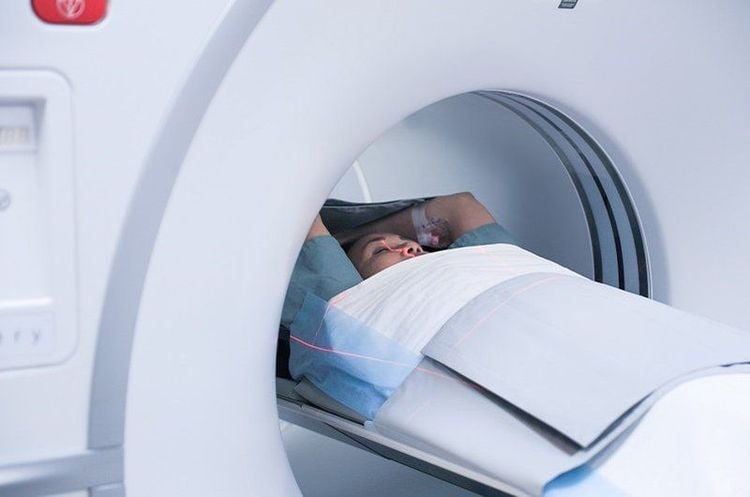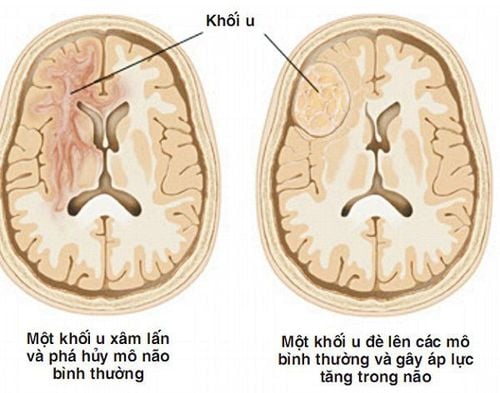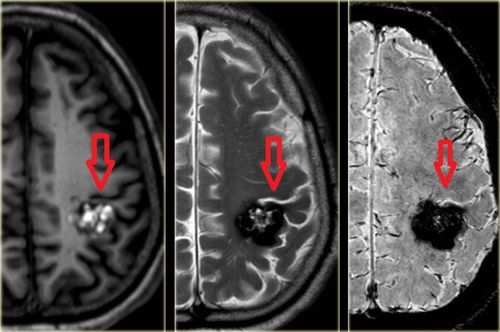This is an automatically translated article.
Ataxia (Ataxia) is a movement disorder of various causes that causes brain damage. With ataxia, the patient will have difficulty moving parts of the body according to their wishes. Ataxia is not a disease but is indicative of multiple cerebellar dysfunction or other underlying disease.
1. Types of ataxia based on affected area
Ataxia under the influence of many different causes leads to damage to different areas of the central nervous system. Doctors classify it according to the specific parts of the brain most affected, including:
Cerebellar Ataxia, Sensory ataxia, Vestibular Ataxia 1.1. Cerebellar Ataxia The cerebellum is the part of the brain responsible for balance and coordination. If part of the cerebellum is affected by a degenerative disorder of the nervous system, cerebellar ataxia syndrome may develop. Sometimes it can also affect a person's spinal cord.
Symptoms of cerebellar ataxia are as follows:
Behavioral or personality changes Voice changes Dizziness Fatigue Headache Muscle weakness Muscle tremors Stuttering Difficulty walking Wide gait Loss of sensation 1.2. Sensory ataxia Sensory ataxia is the result of damage to the nerves in the spinal cord or the patient's peripheral nervous system - the part of the nervous system outside the brain and spinal cord.
When there is sensory ataxia, the patient will have less sensation in the legs and feet due to nerve damage that causes less nerve impulses to be transmitted from the legs to the brain so that the patient can recognize their body in somewhere on the ground. This condition is also known as proprioceptive ataxia.
Symptoms of sensory ataxia include:
The person has difficulty touching their own nose with their fingers with their eyes closed Inability to feel vibrations Difficulty walking in dim light

Thất điều cảm giác khiến bàn chân người bệnh có ít cảm giác
1.3. Vestibular Ataxia Vestibular ataxia affects the patient's vestibular system. This system is in the inner ear, the ear canal, and contains fluid. These parts help to sense the movement of the head, help balance and orient the space.
When nerves in the vestibular system are worn down, the person may experience the following problems:
Blurred vision and other eye problems Nausea and vomiting Difficulty standing up and sitting down Difficulty walking can walk in a straight line Dizzy
2. Causes of ataxia
There are many different causes of ataxia, some may be genetic, some are traumatic and some have no obvious cause.
2.1. Genetics You can inherit a mutated gene from either parent or both that causes ataxia. Some types of hereditary ataxia include:
Ataxia-telangiectasia; Spinocerebellar ataxias Episodic ataxia Friedreich's Ataxia Wilson's disease 2.2. Causes of Certain Diseases Ataxia occurs when a person has damage to the spinal cord or nerves due to injury or disease. Some causes of ataxia include:
Brain tumor Cerebral palsy Chickenpox Hydrocephalus or too much fluid accumulation in the brain Head injury Multiple sclerosis Reactions to certain cancers Vitamin E or B12 deficiency People Ataxia can also be caused by a reaction to certain medications, either alcohol or drug use, or exposure to toxins.
2.3. Idi- Doctors will diagnose idiopathic ataxia if they can't find a reason for a person's ataxia symptoms. The most common type of idiopathic ataxia is multiple system atrophy (MSA).
3. Diagnosis of ataxia
To diagnose ataxia, your doctor will test your balance and coordination, hearing, vision, reflexes, and memory. In addition, you will also need a neurological exam, MRI or CT scan so that the doctor can look at the internal structure of the brain.
Người bệnh chụp CT để kiểm tra đánh giá cấu trúc bên trong não
For some cases, the doctor may order a test of the patient's cerebrospinal fluid. To perform a sample collection, your doctor will insert a needle into the patient's lower back and withdraw cerebrospinal fluid to send it to a laboratory.
To rule out inherited forms of ataxia, you may need additional genetic testing. But not all inherited forms of ataxia have tests to find out if the cause is hereditary.
4. Treatment of ataxia
Since there is no specific treatment for ataxia, the best treatment for ataxia is based on the symptoms of the type of ataxia you have. If your ataxia is a symptom of another disorder, your doctor will treat that disorder.
If the cause of the ataxia can be avoided, such as a vitamin deficiency or exposure to toxins, the doctor will help the person to deal with the problems causing the ataxia.
To help you cope with your own symptoms, the doctor may recommend that the patient:
Go to the health department for complete and accurate advice Perform physical therapy Speech and language therapy Joining support groups Doctors can also help people find tools to help them get around more easily, such as canes or walkers, devices to help them eat and talk more easily. than.
Vinmec International General Hospital is a general hospital with the function of examining, preventing and treating many diseases. With quality professional medical services, modern equipment of international standards, a team of experienced medical professionals will bring optimal results to customers.
Customers can directly go to Vinmec Health system nationwide to visit or contact the hotline here for support.
References: webmd.com, mayoclinic.org













